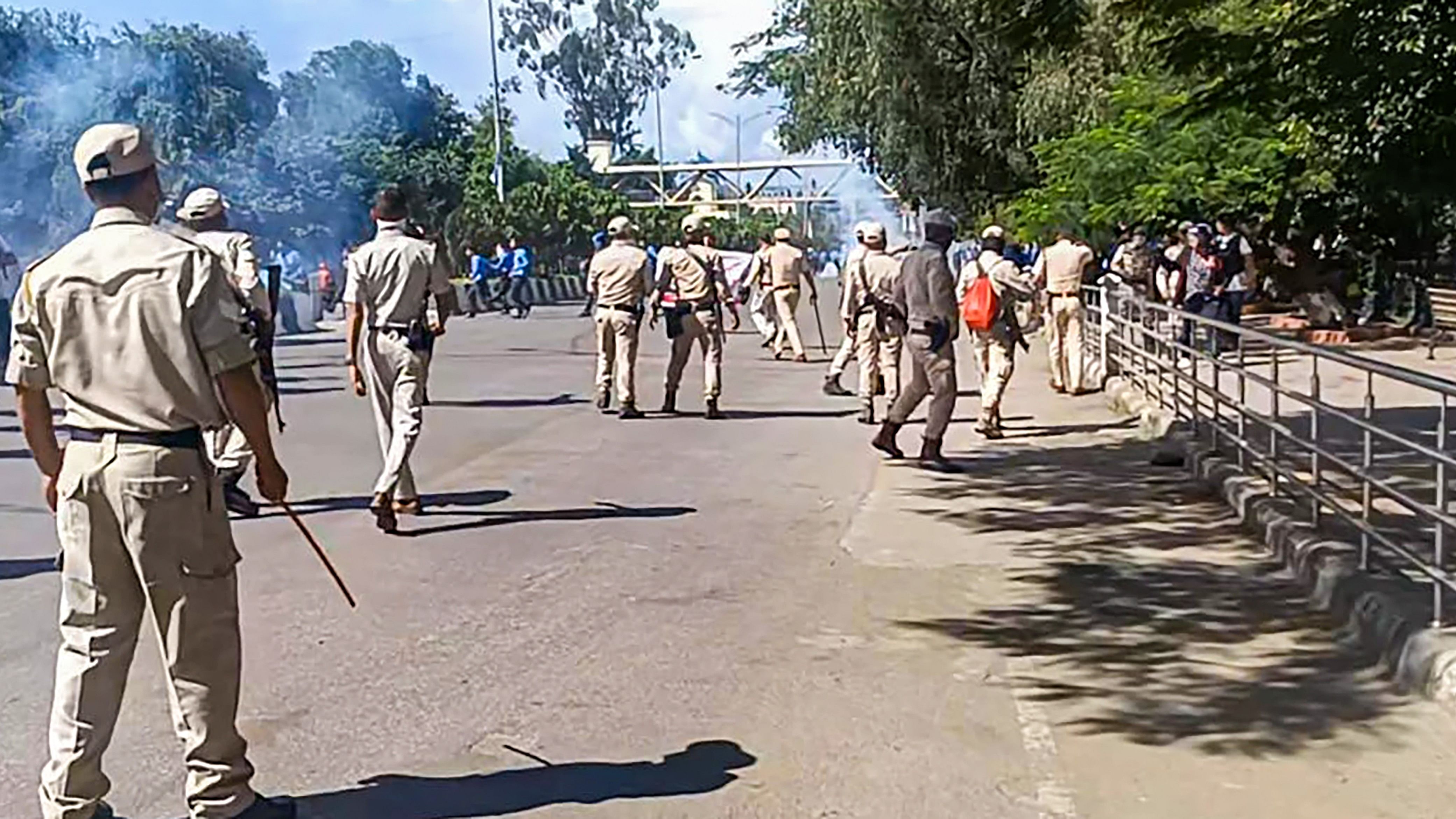
Security forces in Manipur.
Credit: PTI File Photo
More than six months since the eruption of communal strife in Manipur, the fault-lines have widened, violence has spread, and the state has been almost totally divided into two parts.
The majority Meitei community, most of whom are Hindus in the plains, and the Kuki-Zo community, mainly Christians and tribals inhabiting the hilly regions of the state, have insulated themselves against each other and have organised into combat groups.
Arms looted from the state armouries are in free supply.
Violent incidents keep happening every few days, involving attacks by one group or the other against each other or against the security forces.
On Monday, a security personnel and his driver were shot dead in an ambush by members of an Imphal-based extremist group.
Tribal organisations have claimed that their community members have become regular targets of attacks by armed groups.
Even villagers in many areas have armed themselves. There are similar complaints from the other side also.
Last week, the Indigenous Tribal Leaders Forum (ITLF), which represents Kuki-Zo groups, announced that it would establish a "self-governed separate administration" with a separate “chief minister” in areas where the tribal groups have a majority, “whether the Centre recognises it or not.”
The Kukis have set up check-points on roads to prevent the Meitei from entering the hill region. The state government has condemned it as a move “motivated and aimed at vitiating and disturbing the law and order situation in the state.” The police have also filed a case against the organisation’s leader Man Tombing on charges of sedition and attempting to wage war against the government.
But the state government headed by Chief Minister Biren Singh, which has sided with the majority community, and the central government, which has supported it, have driven the minority community to even consider separation from the state.
Socially and psychologically, the state has been divided into two parts and what remains now is a political and administrative region.
It is clear that administrative measures and reliance on security forces will not help to control the situation in the state.
The central government’s continuing support for the Biren Singh government and endorsement of its policies and decisions have worsened the situation.
Prime Minister Narendra Modi is silent on the situation and has not visited the state.
There is no effort to start a dialogue between the two communities, which in any case will not be possible under the present government.
The policies of the central and the state governments have only helped to increase polarisation and the emergence of armed groups which are outside the pale of law. It is a dangerous situation.